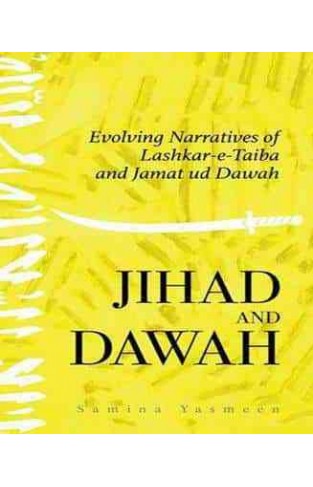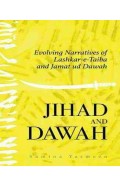Jihad and Dawah Evolving Narratives of Lashkar-e-Taiba and Jamat ud Dawah
By: Samina Yasmeen
-
Rs 10,195.75
- Rs 11,995.00
- 15%
You save Rs 1,799.25.
Due to constant currency fluctuation, prices are subject to change with or without notice.
| Book | |
| What's in the Box? | 1 x Jihad and Dawah Evolving Narratives of Lashkar-e-Taiba and Jamat ud Dawah |
Jihad and Dawah Evolving Narratives of Lashkar-e-Taiba and Jamat ud Dawah
By: Samina Yasmeen
Rs 10,195.75 Rs 11,995.00 Ex Tax :Rs 10,195.75
Zubin Mehta: A Musical Journey (An Authorized Biography)
By: VOID - Bakhtiar K. Dadabhoy
Rs 892.50 Rs 1,050.00 Ex Tax :Rs 892.50
The Origins of Political Order From Prehuman Times to the French RevolutioN
By: Francis Fukuyama
Rs 4,045.50 Rs 4,495.00 Ex Tax :Rs 4,045.50
No similar books from this author available at the moment.
Seven and a Half Lessons About the Brain
By: Lisa Feldman Barrett
Rs 1,525.75 Rs 1,795.00 Ex Tax :Rs 1,525.75
What a Shame: Tipped to be THE hit book of 2022
By: Abigail Bergstrom
Rs 1,947.50 Rs 3,895.00 Ex Tax :Rs 1,947.50
Zubin Mehta: A Musical Journey (An Authorized Biography)
By: VOID - Bakhtiar K. Dadabhoy
Rs 892.50 Rs 1,050.00 Ex Tax :Rs 892.50
Jihad and Dawah Evolving Narratives of Lashkar-e-Taiba and Jamat ud Dawah
By: Samina Yasmeen
Rs 10,195.75 Rs 11,995.00 Ex Tax :Rs 10,195.75














-120x187.jpg?q6)










-120x187.jpg?q6)


-120x187.jpg?q6)



